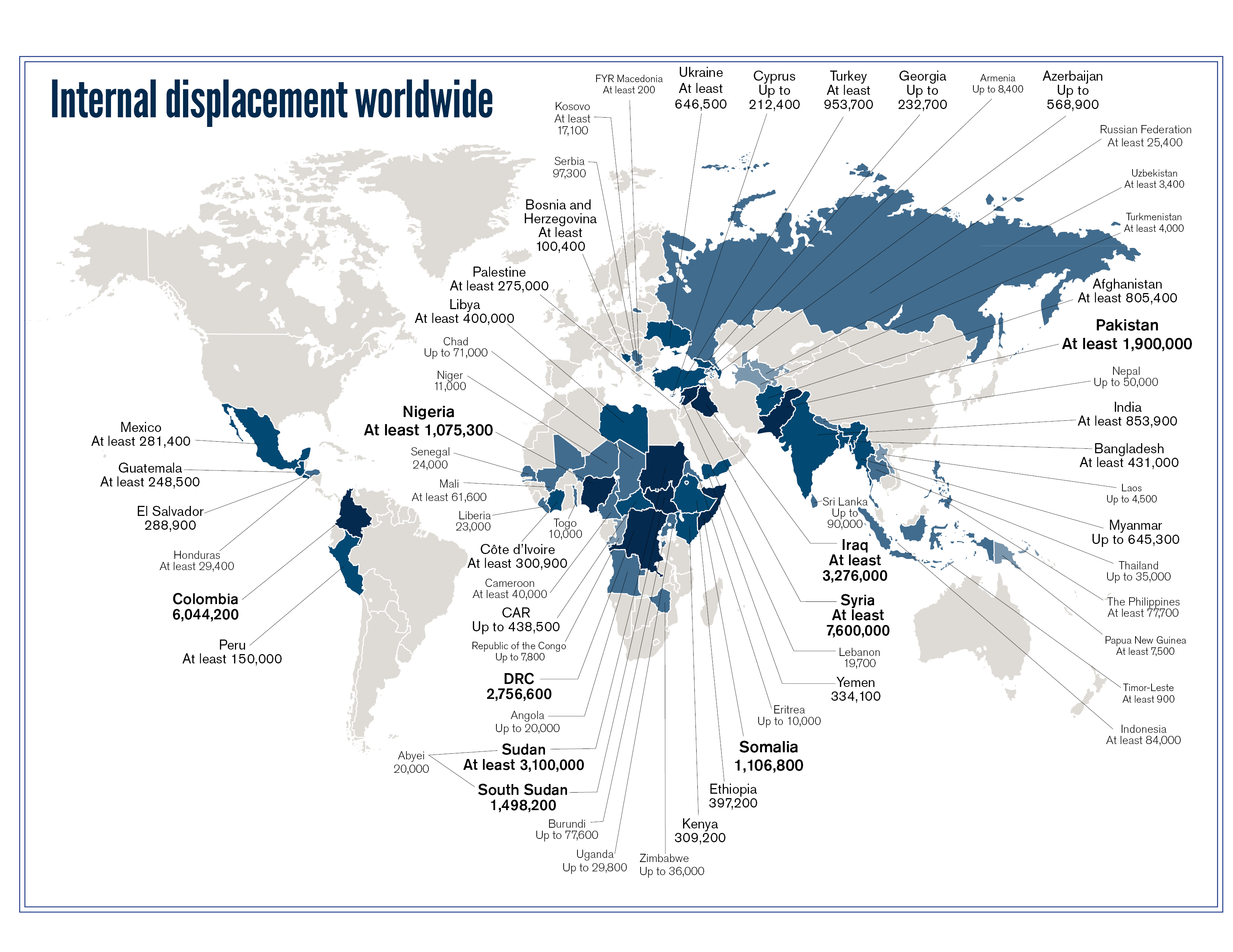by Alexandru Nica

Let us take the following statement by way of introduction. ‘A nation […] is a group of persons united by a common error about their ancestry and a common dislike of their neighbors’. In this article, I will demonstrate how this statement is false, since nations and nationalism are, after all, expressions of identity. As such, nationalism will continue to shape foreign policy as long as nations continue to be the main actors on the international stage. Before discussing about nations, nationalism or foreign policy as their bond, however, one ought to first define these concepts.
Nationalism, nation, what is the difference?
The concept of nationalism has at its core the idea of a nation. This large group of people lives on a common territory and has a common cultural inheritance, a history, a language, a shared religion, and ultimately, interests. It can thus be argued that the concept of a ‘nation’ also develops a feeling of moral affectivity and solidarity among its members. It is not so much about political institutions, structures, or ideologies but rather more about cultural ties and ethnic legacies.
In a nutshell, nationalism can be defined as a current of thought or a doctrine which puts nations and their interests above any other individual or collective interest. In this sense, nationalism implies that nations should be entitled to govern themselves and their territory independently, without any foreign or other external interference. At the same time, nations should be the only legitimate foundation of states. In so doing, states should reflect the national identities and national unity.
However, some historians “have attributed to nationalism a variety of harmful consequences, ranging from absurd social and cultural policies to totalitarian terror and global destabilization”. This fact has often led to misinterpretations when the matter was politicised. Because of some political or diplomatic contexts or to support some extreme ideologies, nationalism can sometimes take exacerbated forms. Xenophobia or chauvinism are but two examples. Nonetheless, in order to understand nationalism’s true nature and purposes, a clear difference must be made between nationalism and these derived concepts.
According to the same Anthony Smith, some definitions consider nationalism to be an artificial doctrine, with almost nothing to do with the organic concept of a ‘nation’. However, there are also perspectives connecting nationalism with a national state of mind, reflected in feelings of national identity and belonging. Therefore, it is not only about people’s desiderata to have their own states and to be masters of their own destiny but also about the sense of belonging, of connection, of ancestry and continuity. It is an indispensable element of one’s core identity, because it implies integrating oneself in your past, present, and future. An existential perpetuity, if you will.
One might be tempted to think that nationalism, as it is perceived today, belongs to modernity. Indeed, nationalism appeared in the German space, as a reaction to the French Revolution of 1789. As such, it might indeed be considered ‘modern’, chronologically speaking. However, the fundamental element that nationalism operates with is the ‘nation’, an organic entity rooted in the pre-modern era (with the 100 Years War or the Spanish Reconquista as examples). In so doing, we can consider that nationalism precedes modernity, semantically speaking. Nonetheless, this argument can be developed separately, as the debate is too wide and complex to be covered here. For now, let us return to foreign policy.
Nationalism in foreign policy
It can be affirmed that foreign policy belongs to modernity, even if certain elements of diplomatic interaction can be identified even back to the era of Ancient Greece or the Roman Empire. At present, upon analysing the contemporary international environment, it can also be stated that nationalism has an important role in shaping world politics and no doubt that foreign policy reflects national interests of many states, even if the world is facing an ever-increasing process of globalisation.
For many states, the role of nationalism in the construction of their foreign policy has to do with a certain need for legitimising foreign affairs. As an analogy, this need for legitimacy can be traced back to the Roman Empire (which had an active and intense propaganda meant to express the civilising role of Rome and the relations with the ‘barbarians’). Historiography, which arose back then, is nowadays still an important factor of legitimacy, especially for countries with expanding tendencies.
When it comes to how national interest can be reflected into foreign policy, Russia is another great example. Even if the U.S.S.R. collapsed in 1991, Russia’s great power aspirations never ceased to be. For this reason, after a decade of internal difficulties and a faulty foreign policy (under Primakov’s policy), Russia adopted a new realism under Putin. This strategy was influenced by the national interests of the state and we can clearly notice a reflection of nationalism in Russia’s foreign policy even more now, in the last decade.
Although Putin’s Russia is not isolationist, his foreign policy made one fact clear: Russia wants to join the Western community. It wants to be integrated among the other great powers, but on its own terms. Simultaneously, it can be observed how Russia is slowly re-emerging as an important power on the international stage, by fully using its resource-rich advantages to pursue its national interests in its relation to the EU.
Speaking about the EU, one can argue that the Old Continent has over the last few years been confronted with a rise of nationalism, a development which is also reflected in foreign policy. This situation was possible also due to the perception that EU members are beginning to face a two-speed Union, where sometimes double standards are applied. Accordingly, Central European countries (the Czech Republic, Slovakia, Poland, and Hungary) were not satisfied with their position, as the power of each one’s voice wasn’t able to make their national interests heard towards the Western part of the Union. To put it frankly, this is how the “Visegrad Group” took shape.
These countries still accept the EU status-quo and common Aquis. However, in some cases, they take actions according to their own interest, even when this comes in contradiction with Brussels’ policy. Hungary, for instance, went even farther, adopting a sort of dualist foreign policy towards the EU and Russia. Orban’s rhetoric has been focused on opposing globalisation, migration, sexual ideologies, contesting decisions of the European Union, accusing foreign corporations of spoliation, calling for a return to Christian and national values, and so on.
In so doing, Orban presented “illiberal democracy” as a better solution, thereby rendering the term “illiberal” in a positive light – a necessary alternative to liberal internationalism and to an emerging “liberal empire” which is the EU. Moreover, as a constant critic of the EU, Orban rallied behind Polish premier Morawiecki and his similar political program.
In this context, one can argue that the Hungarian premier has come with an approach that functions as a ‘defensive shield’ in front of an outer peril which can dilute the Hungarian essence. The reason why his solution was embraced by a majority of Hungarians might be that it resonates with their inner psychological reaction to what they perceive as threatening for their core identity.
In the end, it’s all about identity
Today, when humanity finds itself in an era of digitalisation and globalisation, it might seem at a first glance that national identities are obsolete and anachronistic. However, national identity is one of the main components of psychological identity, broadly defined. In the case of large groups – nations, countries, this aspect is likely to be reflected in relation to other large groups.
By summarising the post-Cold War international context, Samuel Huntington offers an interesting approach on the need for identity. According to him, people are different mainly because they share different cultures. When facing existential questions, they try to find an answer by looking at their core identity, which is undoubtedly and inevitably shaped by their culture and community. By their traits and groups. People know who they are only when they find out who they are not.
Therefore, dimensionally, the group is going all the way up to the nation, starting from family, friends, and the surrounding environment. Nations determine people to adjust not only their self-confidence, but also their principles and values, by sticking to some of them and rejecting others. A human being needs to identify with something and to belong somewhere, as a “zoon politikon” – social animal – and “zoon logikon” – logical animal, as Aristotle stated in his Politics.
Apart from money or power, the need for identity can lead one to fight wars that are not his, on distant continents, thousands of miles away, as large-group affiliation is a very strong element in determining one’s identity. In other words, religion, ethnicity, national identity, culture, they all are at the core of the individual’s psyche.
Trying to survive and belong comes out of an inferiority complex. Trying to subdue and belong comes out of a superiority complex. Still, both are about identity. To quote Huntington: ‘People are discovering new but often old identities and marching under new but often old flags which lead to wars with new but often old enemies’. After all, people are both rational and emotional beings. And for such beings, the need for identity is permanent. That’s why nationalism – as an expression of national identity – is undoubtedly present in both foreign and internal policy and it seems it will probably remain like this as long as states will be the main actors on the international stage.
Alexandru is currently pursuing an MA in Political Psychology at Bournemouth University. He holds a BA in History and is interested in how politics, media, psychology, and technology are interconnected and shape our fast-paced contemporary society.






